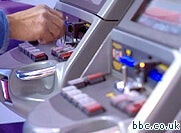A charity which is funded by the gambling industry is set to hand over a Fixed Odds Betting Terminal (FOBT) for academic research, following pressure from ministers.
The Responsible Gambling Trust (RGT) will work with the University of Lincoln to look into the potential for addiction of FOBTs, which have been dubbed the ‘crack cocaine’ of gambling.
Players can bet up to £100 a spin and up to £18,000 an hour on the machines.
Conflict
Anti-FOBT campaigners from the Campaign for Fairer Gambling have however warned that the research is tainted by a conflict of interest.
The group pointed out that the study is being led by the brother of RGT’s director of commissioning.
They also questioned why previous attempts to obtain a machine for a study were rebuffed.
Refused
Matt Zarb-Cousin, from the Campaign for Fairer Gambling said: “Cambridge University requested a fixed-odds betting terminal for research, but the bookmakers refused.”
“Yet they are happy to supply one to Lincoln University through the Responsible Gambling Trust as it is a charity controlled by the betting industry”, he added.
Last month, culture minister Helen Grant demanded that five of the biggest bookmakers within the gambling industry hand over a FOBT for analysis, as the Government will be using information from this research to decide whether to lower the stakes on the machines.
Lower
In December MPs failed to lower the maximum stake for FOBTs from £100.
Ministers said they would await research into the impact of the machines.
The RGT announced that it will also look into the clustering of FOBTs in poorer areas.
Statistics from the Campaign for Fairer Gambling showed that in 2012 people gambled £197 million on high stake betting machines in Liverpool Riverside, which has the fourth highest rate of child poverty in the country.

